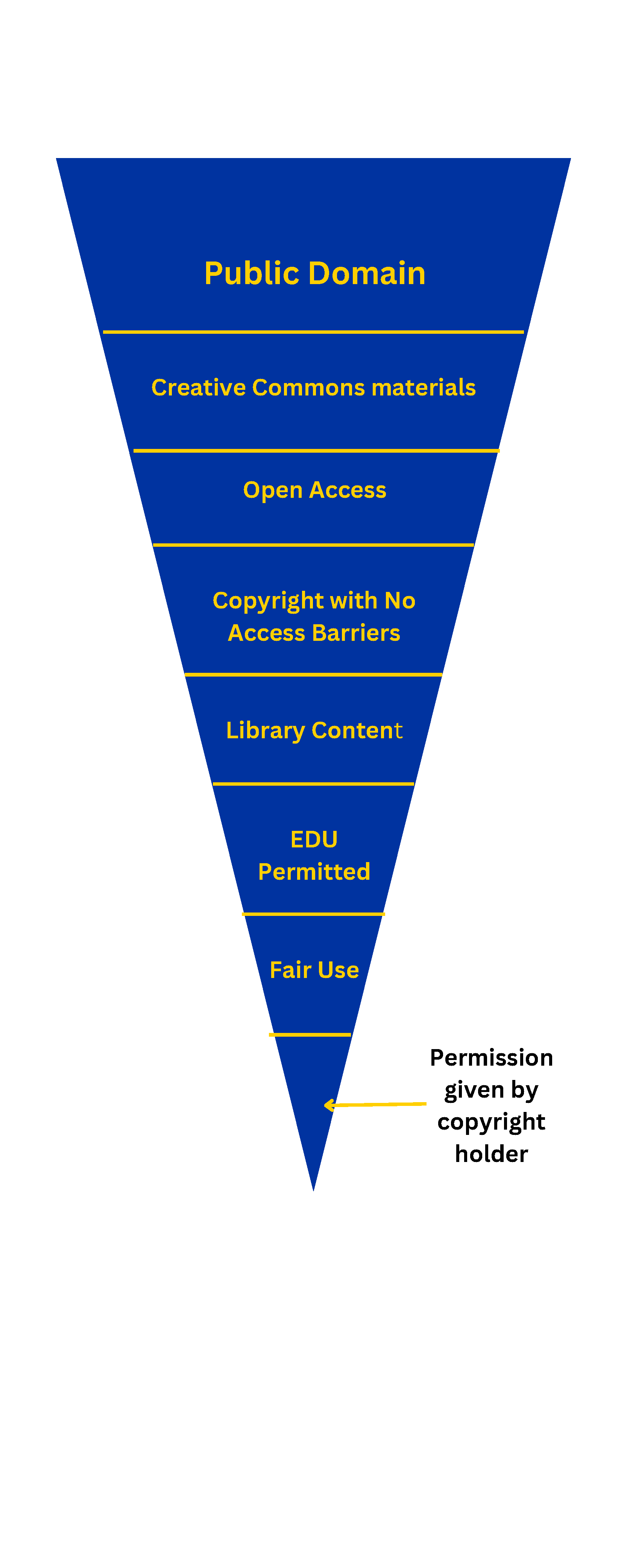6 Using Non-Open Resources as Zero-Cost Materials
Along with content found on the open web, e-books, journal articles, and other materials found in Camden-Carroll Library’s catalog and databases can be used in lieu of course textbooks. Using these resources, however, involves a few considerations:
- Don’t automatically rely on fair use.
- Respect copyright and/or any CC licenses attached to the item.
- Provide a complete citation for the book, e-book, journal article, etc.
- Directly link to the resource with a permalink instead of uploading the content to Blackboard.
- If you are in doubt about your use of the item, ask for permission.
- Contact the library with questions.
Commonly Asked Questions
- Can I post a PDF of an article in Blackboard?
- Can I post a PDF of an article I wrote in Blackboard?
- Can I post a PDF of a book chapter in Blackboard?
- Can I post a PDF of a book chapter that I wrote in Blackboard?
- Can I post the PDF of an entire book in Blackboard?
- Can I post the PDF of an entire book I wrote in Blackboard?
Answer to every question: Find the link to the article or book in the library’s catalog or databases or find it freely online. Then, post that link in Blackboard. If you cannot find a link, then you need to request permission from the publisher.
But what about Fair Use?
While U.S. Copyright law does make provisions for certain educational uses of copyrighted material, there are limits to how much and in what ways they can be used. Whenever you can, try to find a link to the full text and post that link in your Blackboard course. If that is not possible, then this is when you need to contact the publisher.
When considering materials for your course(s), consider the following chart, which shows copyright restrictions from least at top to most restrictive at the bottom.

Public Domain: No copyright.
Creative Commons Materials: CC-licensed materials grant the public permission to use the works under certain conditions. If you follow those conditions, the licenses grant certain permissions for the duration of the underlying copyright.
Open Access: Articles from open access journals might be slightly more restrictive than CC-licensed materials.
Copyright with No Access Barriers: Some items might be free to access because the author and/or publisher has given permission for it to be online. These items still have copyright restrictions that need to be considered. AND even though it may be free to access online, it may not legally be there.
Library Content: Access may be granted to copyrighted materials to students and faculty members of the owning/licensing institutions.
EDU permitted: Some copyrighted materials make exceptions for educational uses.
Fair Use: The use of some copyrighted material may be possible under certain conditions.
Permission from Copyright Holder: You seek permission from the copyright holder to provide the resource to students.
Board, B. (2023, Jan 11). Zero-cost instructional materials: Using non-open resources [LigGuide]. Using Non-Open Resources – Zero-Cost Instructional Materials – Guides at Waubonsee Community College
